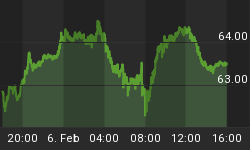During the 2008 economic crisis, Iceland's government froze offshore accounts held by foreign investors in that country's currency, the krona. Recently, the government of Iceland announced it would unfreeze the accounts if the account holders paid a voluntary "departure tax," which could be as high as 58 percent. Investors who choose not to pay the departure tax would have their investment "segregated" into special funds that only invest in CDs issued by Iceland's central bank. These CDs are expected to only provide a rate of return of at most 0.5 percent a year. So investors in offshore accounts can thus choose between having their money directly seized via the departure tax or indirectly seized via the inflation tax.
Iceland's freezing of offshore krona accounts was part of a "stabilization and recovery" program implemented under the guidance of the International Monetary Fund (IMF), which also provided Iceland with a $1 billion loan. So US taxpayers not only helped the IMF bail out Iceland's government, they may have helped the IMF advise Iceland on how best to steal property from American investors!
The IMF's role in Iceland's seizure of the property of foreign investors shows the hypocrisy of IMF officials, who recently expressed concerns about the increasing support for protectionism supposedly exemplified by the Brexit vote. However, freezing of assets held by foreign investors is a particularly harmful form of protectionism, while Brexit was more about rejecting the European Union's bureaucracy than rejecting free trade. Perhaps what the IMF and its supporters are really worried about is losing their power to use taxpayers' money to force other countries to adopt IMF bureaucrats' favored economic policies.
Iceland is not the only government to turn to a departure tax to raise revenue. Just last year, in order to raise revenue for federal transportation programs, Congress gave the IRS the power to revoke the passport of any American accused of owing more than $50,000 in back taxes.
As an increasingly desperate Congress looks for new ways to squeeze money out of the American people to fund the welfare-warfare state, it is likely that more Americans will have their liberties limited because the IRS accuses them of not paying their fair share of taxes. It also is likely that the Federal Reserve will follow the example of its counterpart in Iceland and devalue the holdings of anyone who dares to resist the IRS's demands.
Those hoping that the presidential election will result in real changes are bound to be disappointed. While Donald Trump seems to appreciate how current Fed policies help the incumbent administration while harming the people, he does not appear to understand that the problem is not with certain Fed policies, but with the Fed's very existence. While Mr. Trump does support tax cuts, he also supports increasing government spending on infrastructure at home, militarism abroad, protectionism, and an economic cold war with China.
Hillary Clinton has actually said it is inappropriate for candidates to criticize the Fed. Sectary Clinton has also called for massive increases in government spending and taxes. Hillary Clinton may be more hawkish than Donald Trump, since Mr. Trump has rejected Secretary Clinton's calls for a new cold war with Russia.
Instead of looking to politicians to save us, those of us who understand the dangers of our current course must continue to spread the ideas of liberty among our fellow citizens. Politicians will only change course when a critical mass of people stops falling for the war party's propaganda, stops demanding entitlements, and starts demanding liberty.
Buy Ron Paul's latest book, Swords into Plowshares, here.















